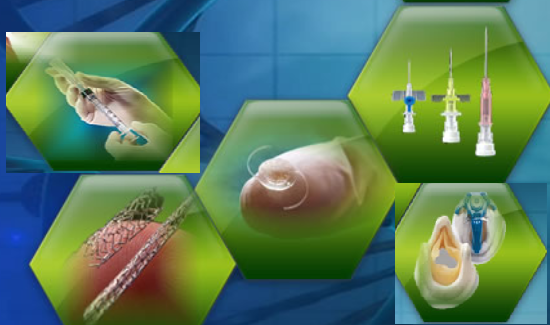
(Photo : www.cdscomdonline.gov.in )
India's Leap Towards Self-Reliance in Medical Devices
- India's government launches a Rs 500 crore scheme to strengthen the medical device industry.
- The scheme aims to enhance domestic manufacturing and reduce reliance on imports.
- India's medical device market, valued at $14 billion, is expected to grow to $30 billion by 2030.
- The scheme is expected to drive innovation, enhance self-reliance, and position India as a global leader in medical technology.
The Indian government has taken a significant step towards strengthening the medical device industry with the launch of a comprehensive Rs 500 crore scheme. Unveiled by the Union Minister of Health and Family Welfare, Jagat Prakash Nadda, the scheme aims to fortify the medical device industry by focusing on critical areas. These include the manufacturing of key components and accessories, skill development, support for clinical studies, development of common infrastructure, and industry promotion.
The scheme has been met with approval from medtech leaders who believe it will not only enhance domestic manufacturing but also reduce reliance on imports. The recent Covid-19 pandemic underscored the importance of self-reliance on medical devices, with a significant demand for medical kits, syringes, ventilators, masks, and PPE kits.
Rajiv Nath, Forum Coordinator, AiMeD, highlighted the importance of medical devices during the pandemic, stating, You saw that during the Covid, the whole country was put under lockdown because we did not have medical devices, which were necessary to fight the war. For four months, we were collecting materials, like making ventilators, masks, and PPE kits. I think the country understood the importance of medical devices then.
The Impact on the Medical Device Industry
The medical device industry is a crucial pillar of healthcare delivery. Devices ranging from diagnostic machines to surgical instruments, and from stents to prosthetics, play a critical role in the prevention, diagnosis, and treatment of diseases. India 's medical device market is valued at approximately $14 billion and is expected to grow to $30 billion by 2030.
Pawan Chaudhary, Chairman of the Medical Technology Association of India (MTaI), echoed the sentiment, stating, "I completely agree that the medical devices scheme will provide healthcare sovereignty in a way that it is very important for us to be self-reliant in healthcare. During Covid, when this self-reliance was lacking, we felt its absence."
The new scheme consists of five sub-schemes: common facilities for medical devices clusters; marginal investment scheme for reducing import dependence; capacity building and skill development for medical devices; medical device clinical studies support scheme; and medical device promotion scheme.
A Major Advancement for Domestic Manufacturing
Anish Bafna, Secretary, Nathealth, noted that the Rs 500 crore scheme for the medical device industry marks a significant advancement toward boosting domestic manufacturing and reducing import reliance. He added, "There is a significant push to develop a robust local supply chain, thereby lowering costs and spurring innovation. In addition, the clinical study support will help companies generate critical evidence for regulatory compliance, facilitating market expansion."
The experts noted that these initiatives will provide a strong foundation to drive innovation, enhance self-reliance, and position India as a global leader in medical technology. The scheme is expected to have a multiplier impact, despite the budgetary allocation seeming small. It is an inclusive scheme that would benefit start-ups and established companies and is poised to harness local and global currents.
* This is a contributed article and this content does not necessarily represent the views of btin.co.in









